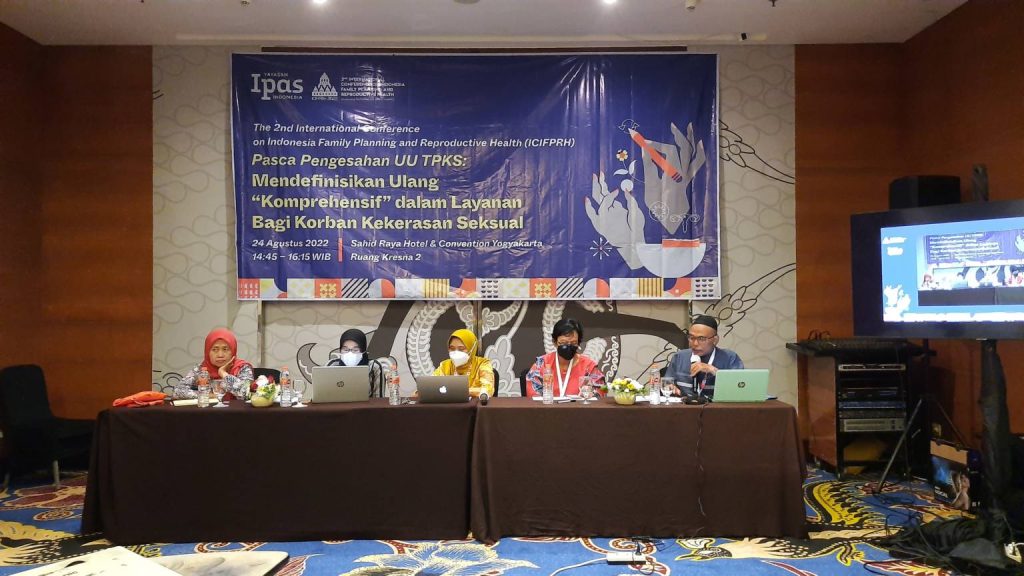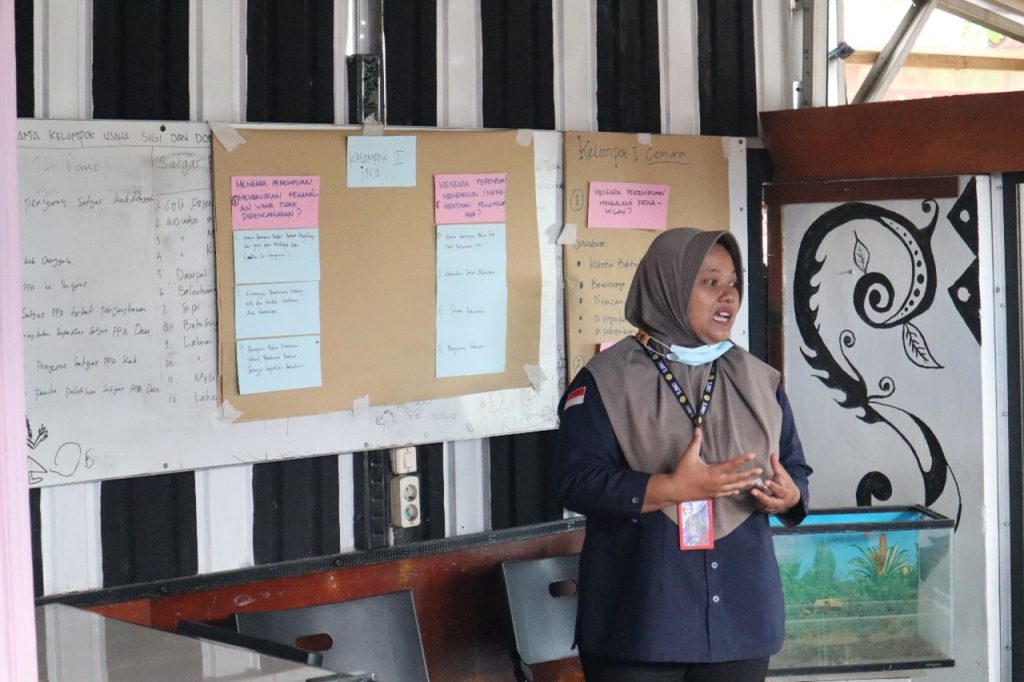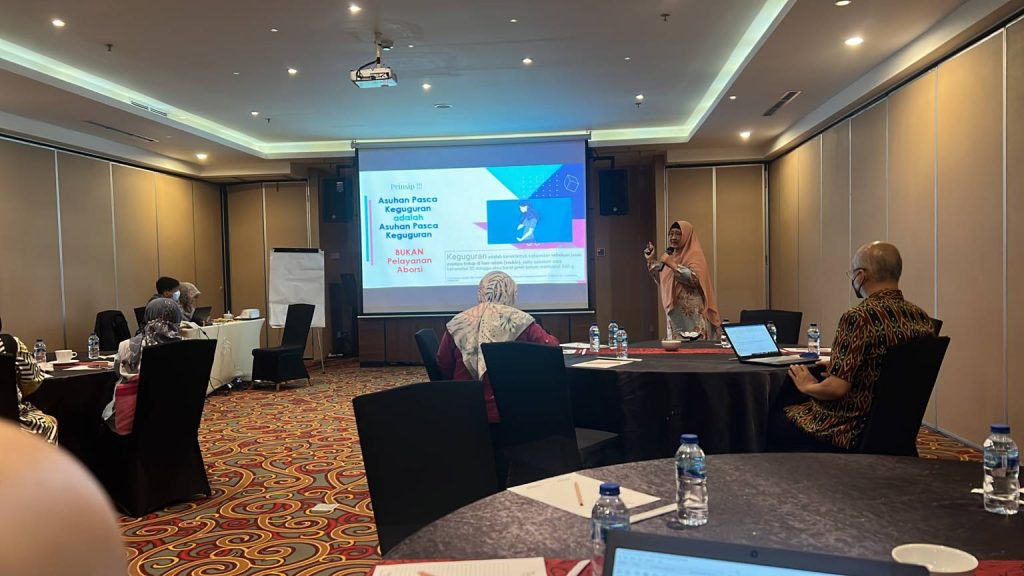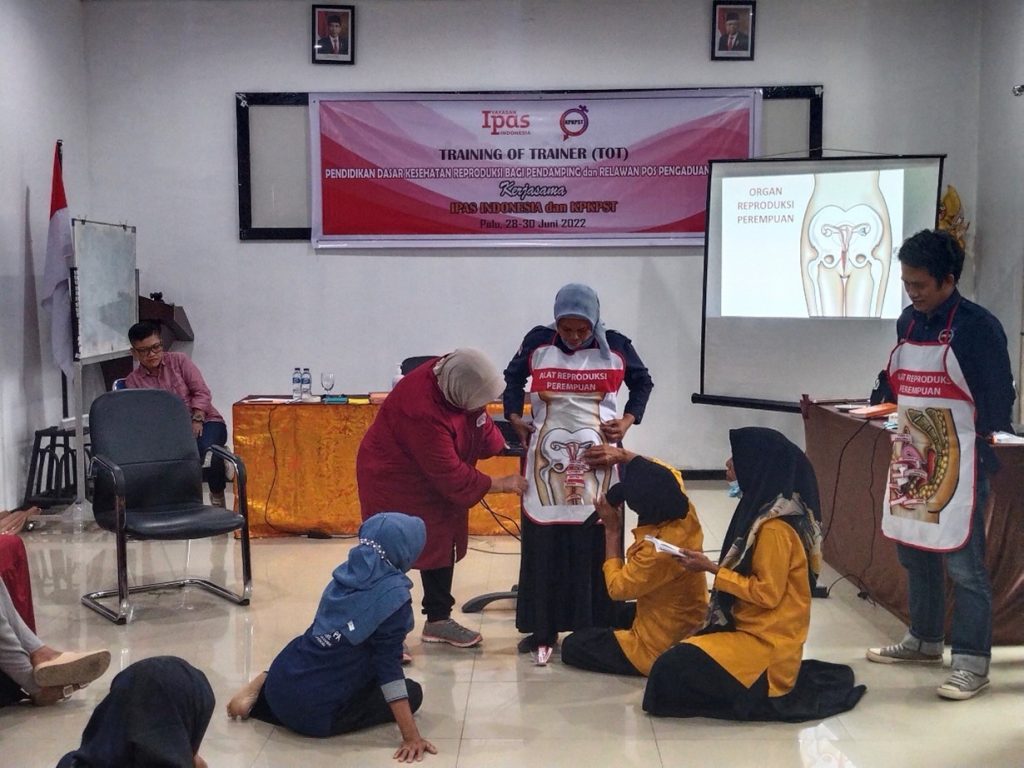IPAS Indonesia held a discussion entitled Redefining “Comprehensive” in Services for Victims of Sexual Violence (24/08). This discussion was part of the second International Conference on Indonesia Family Planning and Reproductive Health (ICIFPRH) held at Sahid Raya Hotel and Conference Yogyakarta.
The focus of this discussion is to dissect the challenges and opportunities for providing comprehensive services for victims of sexual violence in Law Number 12 of 2022 on Criminal Acts of Sexual Violence (UU TPKS). IPAS Indonesia presented speakers including Sri Nurherwati, SH, former commissioner of the National Commission on Women and Chairperson of the Sukma Foundation, KBP DR. dr. Sumy Hastry Purwanti, DFM, Sp.F, Head of Biddokkes Polda Central Java, Suharti, Service Provider Forum, and Masruchah, Secretary of the Indonesian Women’s Ulama Congress (KUPI).
Women and girls who are victims of sexual violence are entitled to comprehensive services, protection and recovery in accordance with Indonesian laws and regulations. This is stated in Health Law Number 36 of 2009 article 75. So, what is the right to comprehensive services in the TPKS Law?
Sri Nurherwati said that although the provision of comprehensive services for rape victims is not explicitly regulated in the TPKS Law, there are still opportunities to realize these services through the right to recovery for victims. This is found in Article 67 paragraph 2 of the TPKS Law which reads that the fulfillment of victims’ rights is a state obligation and is carried out in accordance with the conditions and needs of victims. For this reason, a Standard Operation Procedure (SOP) in the form of Government Regulations and Presidential Regulations is immediately needed for its implementation.
“We need SOPs for the implementation of the law in accordance with the nine types of violence contained in the TPKS Law, in these SOPs the evidence must be clear so that it can be used by investigators,” he said.
Learning from the Bhayangkara Level 2 Hospital in Semarang, KBP DR. dr. Sumy Hastry Purwanti, DFM, Sp.F revealed that providing comprehensive services requires the cooperation of health workers, police, and community volunteers. She also explained the flow of victim-friendly services implemented in Semarang.
“Clinical forensics at Bhayangkara Hospital Level II Semarang has psychologists and assistants, besides that, if you come to the Polres / Police Chief, make sure to report to the investigator, if it is not possible for the victim to come, the investigator will come, if there is medical action we do it first, if there is a need for forklin services we do it first,” he explained.
Meanwhile, Suharty, Ethics Commission of the Service Providers Forum, explained that there are three main things in providing comprehensive services to rape victims, namely legal services, psychosocial services, and medical services. “These three basic needs must be met when recovering from sexual violence to be comprehensive,” she emphasized.
However, the reality is that comprehensive services are currently not widely available. The few regions that have implemented the service quality standards of the Women and Child Protection Office (PPA) are Batang, Yogyakarta, and Semarang.
“These regions have clearly mentioned the existence of safe abortion services for rape victims in accordance with the Health Law, while other regions do not even have information on services, including how to utilize the 72-hour golden period to save victims from the risk of pregnancy due to rape,” she said.
Suharty added that this is exacerbated by the lack of sensitivity of counselors to take advantage of the regulation (safe abortion for rape victims) that gives a gestational age of only 40 days. Not to mention the difficulty of doctors providing services on the grounds of the doctor’s oath.
Various efforts have been made by the service procurement forum to initiate an integrated criminal justice system in collaboration with Komnas Perempuan. However, some regions did not have the courage to make Regional Regulations because they needed legal references. Therefore, the TPKS Law is expected to become a legal reference through articles on the fulfillment of victims’ rights to recovery and protection, both for victims, families, and companions.
Efforts to provide comprehensive services for rape victims are also the focus of KUPI’s work. Masruchah, Secretary of the KUPI Assembly, explained that religious views use a benefit of the people approach with a mission for goodness and justice for rape victims based on law and religion. “Religion prohibits life-threatening acts, sexual violence has implications for the psyche and shock so that women cannot do work in the public sphere,” she said.
One important work carried out by KUPI is the existence of a fatwa that supports the right of victims to obtain comprehensive services in accordance with the Health Law by increasing the service period from 40 days to 120 days. The fatwa is one of the aspects that will be presented at the congress in November, involving 28 provinces in Indonesia and 20 countries in the world.
The availability of comprehensive services for rape victims is an important part of the ICFPRH 2022 big theme, namely accelerating the three zeros consisting of stopping maternal deaths, stopping unmet family planning needs, and stopping gender-based violence and harmful practices against women and girls. Through the TPKS Law, it is hoped that it can provide legal strength so that comprehensive services can be felt by victims of sexual violence and rape.



